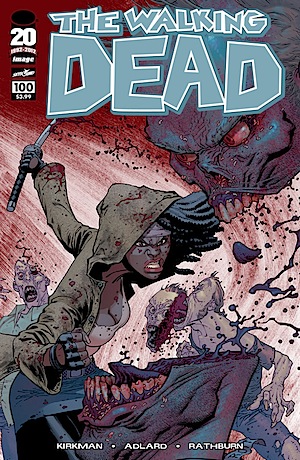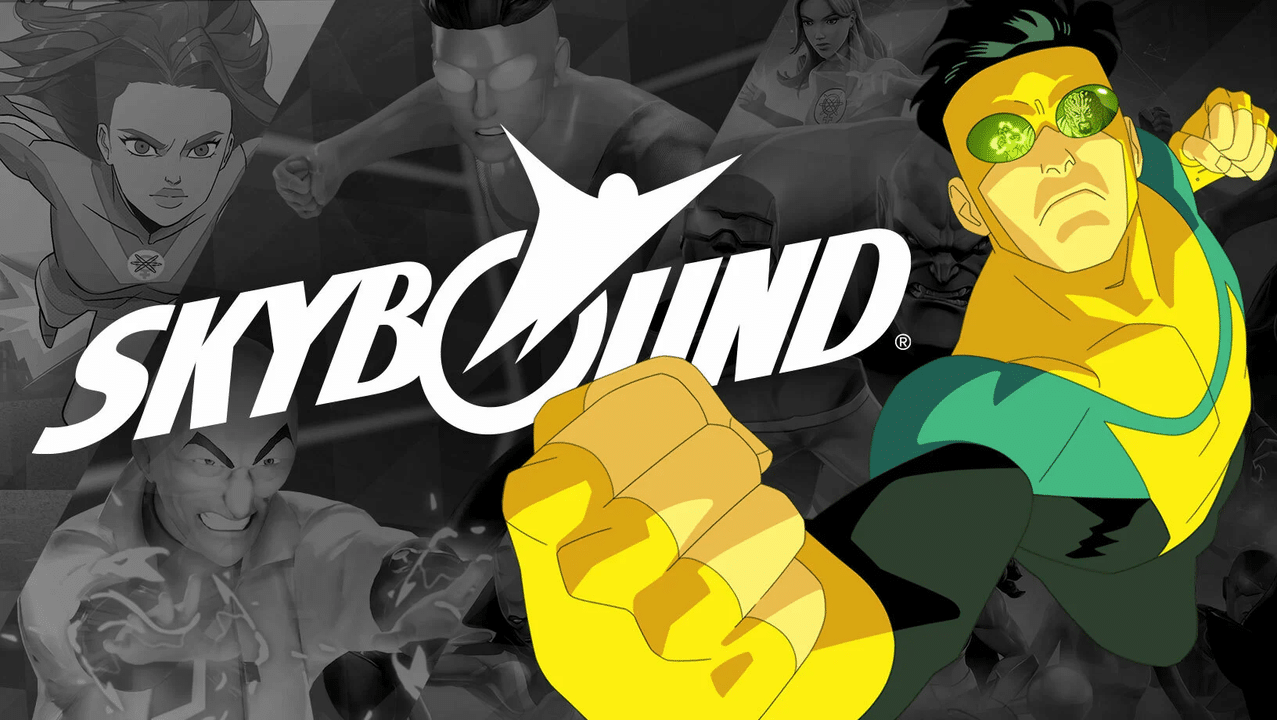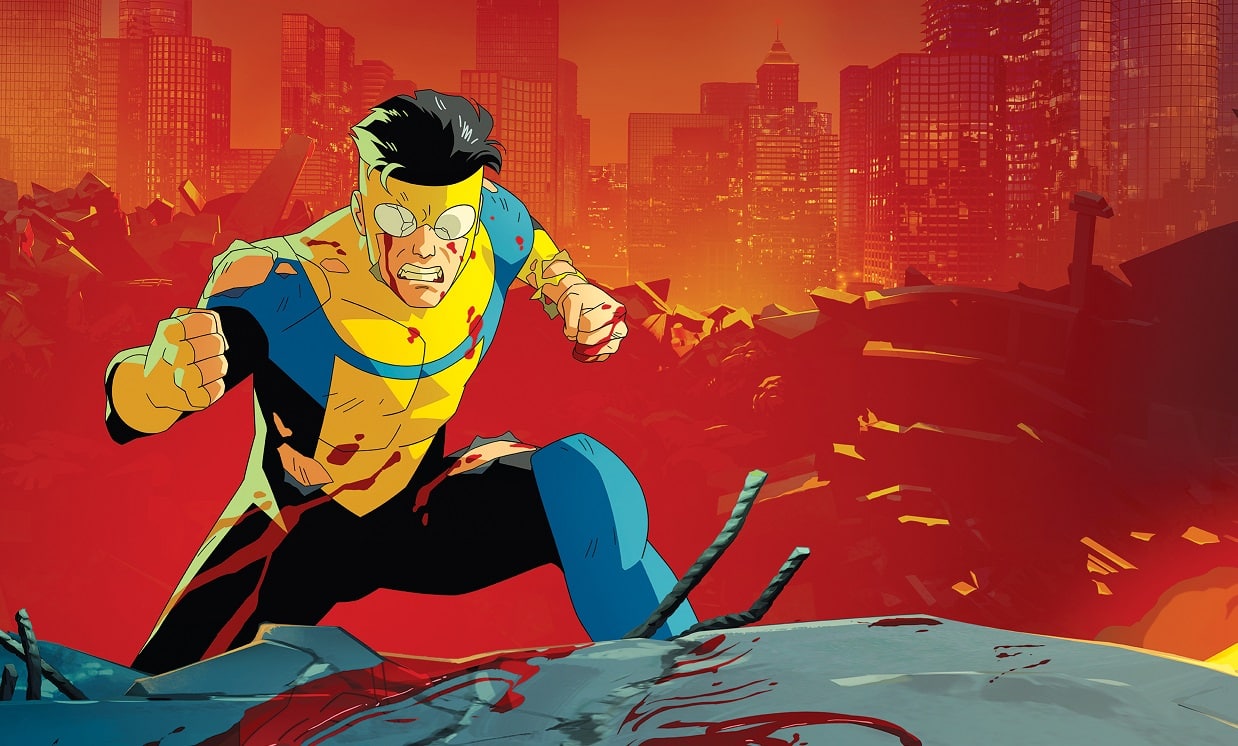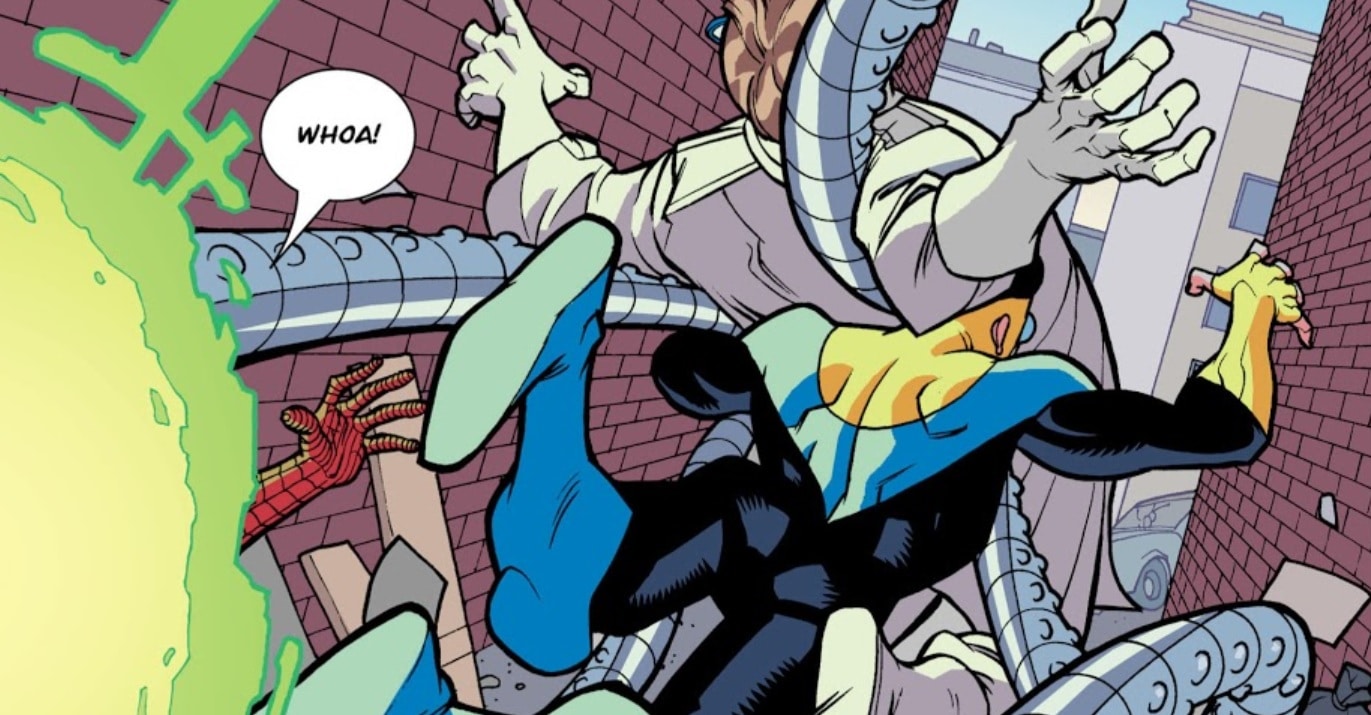CBR has a nice roundtable on creator-owned comics that rounds up Robert Kirkman, Mark Millar, and Steve Niles. Since they are all “strongly for”, the piece doesn’t really ignite any banter, but it does allow many long, entertaining manifestos. For instance, how Millar terrorized Alan Moore when he was a teen.
Millar: And then I met Alan Moore when I was 13. It was around the same time, and there was a small comic convention in Glasgow where Alan showed up. He was still a new superstar then. He hadn’t really made his name in American comics except for a couple of issues of “Swamp Thing.” So he introduced me to “Warrior” where his early worked appeared. I’d never heard of him, but he was a really nice man and stood with me for an hour, which must have been torture for him, but for me it was fascinating because I got to talk to a comic book writer. And Alan was explaining to me about “Marvelman” and “V For Vendetta” and that he was starting on “Swamp Thing.” I remember I didn’t have enough money on me, so he bought me an issue of “Swamp Thing” and one of “Warrior,” which was the British independent comic that made me realize there was more going on beyond Superman and Batman.
Niles makes a few veiled allusions, first on the subject of those “movie pitch comics”:
Niles: I think content wins out in the end. In the end, you can sniff out those companies and those comics. You can tell when a comic is just a movie pitch or when it’s made with a genuine love of the medium. And I’ve been accused myself of just doing stuff to make movies, but everything I’ve done at its core is about loving comics and putting out good comics. There’s always that pile on where if something good happens for comics, EVERYBODY starts trying to do it, but we’re starting to see a lot of those companies that you’re referring to…well, I haven’t heard from a lot of them in a while. So I think the good stuff is floating to the top now.
And then on some…other events.
Niles: On top of the fact that you’re not told what to do – which is amazing since every time I’ve done DC and Marvel stuff, the things I’ve been criticized for are the things I was pushed into doing – I am totally ready to get shredded for anything I chose to do in a creator-owned book. I can take that criticism. But when you do something with a character that’s against your better judgement because it’s the order, that’s not very smart publishing – to hire a creator because you think they’re talented and then you don’t allow them to do what they want to do.
I found myself nodding, pounding my fist and yelling “Yeah!” most at Kirkman’s comments though. Kirkman is still pretty young—even his Wikipedia page doesn’t give his age but he’s still in his early 30s—and was raised in a world where creator-owned comics were the norm. Hence his insights that bust some old-timer notions:
Kirkman: But I do think there’s one thing that people haven’t been talking about, and that’s that when I came into the industry, it was rare to find a creator-owned title that came out regularly and shipped on a continuous monthly basis. Now I think you can walk into a comic store and find 50 of those! And I also think that the Direct Market comic book reader actually prefers what you get out of a creator-owned book these days. They want consistency and continuity and to know that book is going to be there month in, month out. What they’re getting now from bigger companies is exactly the opposite. If you’re reading a regular monthly series, the creative team can change at any moment. The entire narrative can change. The entire universe can change! And then all of the sudden, there’s a bunch of new #1 issues the next week. That can be a fun, exciting kind of thing, or it can have the opposite effect. There’s no stability at the Big Two right now, and I think Direct Market readers are realizing that there’s a tremendous amount of stability in something like “Chew.” It comes out monthly. It’s always by the same creative team. If you’ve read issue #1, you know that that stuff is going to play out in issue #30, and a lot of thought has been put into that. So you’re reading a continuing narrative experience, which people want out of comics.
[nods] I’m pretty sure CHEW has a longer-running regular team than any mainstream comic at this point.
He also nails the twilight of the superhero:
Kirkman: I think we’ve seen the last Elektra or Wolverine or Deadpool – the last great characters to come along in a company-owned universe and take people by storm. When you start to realize how old the “newer” characters are in those universes, you can see how people have come to grips with the fact that anything you do there will be owned by somebody else. I think it would be a tragedy to see Hellboy running around in the DC Universe. I’m sure there’s a parallel dimension where that’s happening right now, and even that’s terrible. There’s a lot more opportunity out there now, though, and there are places to go with creator-owned stuff. And people are aware of all that. So hopefully we’ve seen the last of people getting bamboozled out of their creations without their knowledge.
…a view which Millar states even more succinctly:
Millar: I like the Marvel and DC guys, so I don’t want to do any name calling. But I don’t like them so much that I’d create a character for them. [Laughter] I wouldn’t give them a free concept, but they’re fun to work with.









“I’m pretty sure Chew has a longer running regular team than any mainstream comic at this point.”
Incorrect: INVINCIBLE IRON MAN by Fraction and Larroca has had the same creative team for four years now, their *55th* consecutive issue coming out this month. And it has shipped more than 12 times a year. AND it is arguably Marvel’s best superhero comic.
(The exception to the rule in the Big Two, I know.)
Oh, and (the superb) CHEW by Layman and Guillory is not the best example for timely shipping – it has skipped months at least seven times in its run, with multiple instances of two-month gaps.
And are any of these folks going to call Millar out on his transparent movie-pitch comics? Because that’s most of them, honestly.
Millar is not the worst offender of the movie pitch comic. Pretty much everything from Top Cow’s pilot season felt like a movie pitch.
A lot of Millar’s comics are what he would do with Big Two characters if the Big Two would allow it and pay handsomely for said work.
Niles is right about the Big Two companies hiring talent but not allowing them to actually use their talent. DC in particular feels like that is the work environment that have in place with the New 52. ( Johns, Morrison, and Snyder being the exceptions)
Kirkman is right about there being more variety available. With webcomics and the increased digital efforts, there’s even more titles around.
I do think that there’s room for growth in terms of genres to be explored ( re explored) in the current American comics landscape.
There’s an awful lot of creator owned titles that veer close to horror/ sci-fi just as the Big Two titles leaning heavily on superheroes.
If feels like writing for the big two and other people’s IPs these days is a completely different skill set.
“If feels like writing for the big two and other people’s IPs these days is a completely different skill set.”
Yeah and only half of it creative!
Millar: I like the Marvel and DC guys, so I don’t want to do any name calling. But I don’t like them so much that I’d create a character for them. [Laughter] I wouldn’t give them a free concept, but they’re fun to work with
___________________________________
I guess Millar forgot about SKRULL KILL KREW (which was inspired by a Byrne FF story) and AZREK:THE ULTIMATE MAN that he co-created with Grant Morrison.
OMT, Millar is the poster boy for creating movie pitch comics.